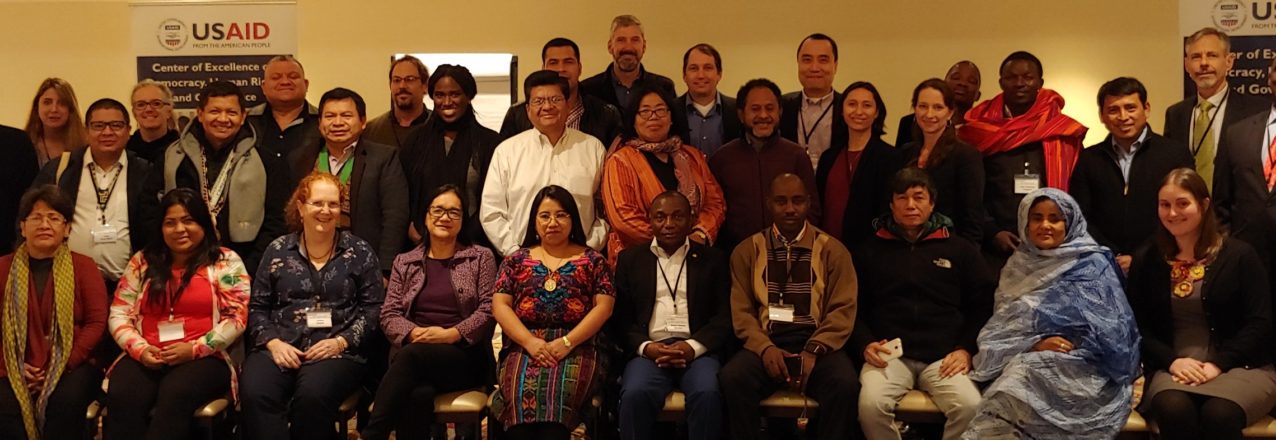INTEGRATED LAND AND RESOURCE GOVERNANCE TASK ORDER UNDER THE STRENGTHENING TENURE AND RESOURCE RIGHTS II (STARR II) IDIQ
The United States Agency for International Development (USAID) is developing a policy to guide its engagement with indigenous peoples. USAID recognizes that indigenous peoples contribute to global development and have a crucial role to play in achieving the agency’s objectives. The policy will guide USAID’s efforts to include indigenous peoples as partners in its development programming. USAID aims to ensure that every USAID activity that impacts the lives, territories, resources, and/or livelihoods of indigenous peoples engages them directly to ensure that their communities benefit, their rights are respected, and they can practice self-determined development.
On October 23, 2018, USAID released a consultation Draft USAID Policy on Indigenous Peoples’ Issues (hereinafter the “draft policy”). To gain feedback on the draft policy, USAID posted the draft policy on its website for general public comment between October 23 and November 9th, 2018. USAID also hosted a two-day consultation meeting with indigenous peoples’ representatives and international nongovernmental organizations (INGOs) on November 14 – 15, 2018 in Washington DC. The consultation meeting was facilitated by the Integrated Land and Resource Governance (ILRG) Program, a USAID program implemented by Tetra Tech. ILRG is a task order under the Strengthening Tenure and Resource Rights II (STARR II) Indefinite Delivery/Indefinite Quantity (IDIQ) contract supported by the USAID Land and Urban Office.
Indigenous peoples’ representatives from the following countries attended the consultation meeting: Bangladesh, Botswana, Burkina Faso, Democratic Republic of the Congo, Ecuador, Guatemala, Guyana, Indonesia, Kenya, Nicaragua, Panama, Paraguay, and Peru. Some representatives of INGOs that work closely with indigenous peoples, the United States Environmental Protection Agency, and USAID also participated. A total of 46 people attended the consultation meeting. Of these, there were 18 indigenous peoples’ representatives, 13 INGO representatives, one independent consultant, eight United States (US) government representatives, and six Tetra Tech representatives. An online platform was also made available for invited persons to contribute written comments on the draft policy both before and after the consultation meeting. Eight participants submitted comments before the November 9 deadline. Following the consultation meeting, participants were given a few additional days (until November 20) to submit additional written comments. Two more participants submitted comments by November 20.
The consultation meeting consisted of two main elements of discussion: a) Sessions for USAID to present the draft policy and its key components with time for participants to ask clarifying questions; and b) Sessions for indigenous peoples’ and INGO representatives to discuss the elements of the draft policy and express their views. This report is an output of the consultation meeting and the written input from its participants. It provides a summary of the perspectives and recommendations as expressed at the consultation meeting and as provided on the online platform in writing.
This report will be provided to all invited participants, and made available in English, French, and Spanish, in the spirit of the shared dialogue and conversations that took place during the consultation meeting. This report will also be used by USAID as it produces the final version of its new Policy on Indigenous Peoples’ Issues. As a summary, the report does not relay all comments made or all the details and background provided by participants. This report complements USAID’s own notes on the conversations that took place during the consultation meeting as well as their reading of the written comments submitted via the online platform.


